229 Masters Courses in Germany - Find Universities,Deadlines, Eligibility & Fees
Latest Update: As of April 2025, the UK may require master’s graduates to earn £30,000+ to stay under the Graduate Route. Additionally, the visa fee has increased from £822 to £880 (INR 93,500- INR 1L).
In 2025, Germany continues to be a premier destination for international students, with over 405,000 enrolled, marking a 7% increase from the previous year . Pursuing a Master’s in Germany offers globally recognized degrees, low to no tuition fees at public universities, and strong career prospects.
Programs typically span 2 years, available in English and German. Monthly living expenses average around €934 (USD 1,000 / INR 85,000). Post-graduation, students can stay up to 18 months to seek employment, with starting salaries ranging from €45,000 to €60,000 (INR 38.25L–51L) annually, depending on the field .
Masters in Germany - Overview
Do you want to study in a country where top-ranked universities, affordable education, and a booming job market come together?
Germany could be your perfect destination! Whether you're an engineer, business enthusiast, or scientist in the making, Germany offers a diverse range of master's programs designed to propel your career forward.
Why Choose Germany for Your Master’s?
World-Class Education – Home to prestigious universities like TU Munich and Heidelberg.
Affordable Tuition – Most public universities charge little to no tuition fees.
Global Career Prospects – Strong focus on research, innovation, and employability.
English-Taught Programs – No need to be fluent in German (but it helps!).
Thriving Student Life – A mix of academic excellence and cultural diversity.
Types of Master’s Degrees in Germany
Germany offers two distinct types of master’s programs to cater to different academic backgrounds:
- Consecutive Master’s: For students continuing in the same field as their bachelor's. Example: B.Tech in Computer Science → M.Sc. in AI.
- Non-Consecutive Master’s: For those switching fields or requiring work experience. Example: B.Com → MBA in Finance.
Program Duration & Language Options
- A master's degree in Germany typically takes 1.5 to 2 years to complete.
- Courses are available in both German and English, making them accessible to international students.
Whether you're looking to specialize further in your field or explore new academic horizons, Germany offers the perfect blend of quality education, research opportunities, and career growth.
If you're curious about how Indian students can take advantage of this opportunity for free education in Germany, Also Read: How to Avail Free Education in Germany for Indian Students in 2024? to explore more details.
Eligibility Criteria for Masters in Germany
To pursue a master's degree in Germany, students must meet specific eligibility criteria related to academic qualifications, language proficiency, and standardized exams. While requirements vary by university and program, some common prerequisites apply.
1. Academic Requirements
To qualify for a master’s degree in Germany, students must have:
- A Recognized Bachelor’s Degree – The degree should be equivalent to a German undergraduate degree.
- Indian students: A four-year bachelor’s degree is usually required.
- Some universities may accept a three-year degree, but students may need additional credits.
- Minimum GPA/CGPA Requirement
- Most universities require a CGPA of 7.0 or above (on a 10-point scale).
- Some competitive programs may demand a higher GPA or additional academic credentials.
- Relevant Academic Background
- For consecutive master’s programs, students must have a bachelor’s in the same or a closely related field.
- For non-consecutive programs, universities may ask for prior work experience or additional coursework.
Tip: Check the university’s website for specific subject requirements. Some programs may require coursework in subjects like mathematics, programming, or economics before admission.
2. Language Proficiency Requirements
Since master's programs in Germany are offered in both English and German, language requirements depend on the medium of instruction.
- For English-Taught Programs
- IELTS: 6.5 - 7.5
- TOEFL iBT: 90 - 100
- Some universities may accept PTE (59-75) or Duolingo English Test (DET 115-130).
- For German-Taught Programs
- TestDaF: Level 4 in all sections.
- DSH-2: German language proficiency exam required for university admission.
- Goethe-Zertifikat C2 or Telc Deutsch C1 Hochschule may also be accepted.
Tip: Even if you apply for an English-taught course, learning German can improve your job prospects and day-to-day life in Germany.
3. Standardized Exams Required
Certain universities and programs require standardized test scores to assess academic aptitude.
- GRE/GMAT
- Required for some engineering, management, and finance programs.
- GRE Score: Competitive universities prefer 315+.
- GMAT Score: For business-related courses, a score of 600+ is recommended.
- GATE
- Some technical universities in Germany accept GATE scores for Indian students applying to engineering and technology programs.
- A valid GATE score (preferably 90+ percentile) may be required.
- Additional Exams
- Portfolio Submission – For creative courses like Architecture, Design, or Fine Arts.
- Work Experience – Required for some MBA and non-consecutive master’s programs.
By ensuring you meet these eligibility criteria, you can confidently apply for a master’s degree in Germany and take the next step toward a world-class education.
Admission Process for Masters in Germany
Applying for a master’s program in Germany requires thorough preparation and documentation. The process typically involves multiple steps, from selecting universities to submitting applications.
Step 1: Research and Choose a Program
- Use platforms like DAAD (German Academic Exchange Service) to explore programs.
- Check university rankings and course content.
Step 2: Meet Entry Requirements
- Ensure you fulfill academic and language proficiency criteria.
- Take required standardized tests (GRE, GMAT, IELTS, etc.).
Step 3: Prepare and Submit Your Application
- Apply via the university portal or Uni-Assist, a centralized application service.
- Required documents:
- Academic transcripts
- Statement of Purpose (SOP)
- Letters of Recommendation (LORs)
- Updated Resume/CV
- Proof of English/German proficiency
Step 4: Attend Interviews (If Required)
- Some programs may conduct interviews to assess applicants.
Step 5: Receive Admission Offer and Apply for a Student Visa
- Once accepted, apply for a German student visa (Type D).
- Show proof of financial stability via a blocked account (€11,208 per year).
Application Deadlines & Intakes
German universities have two primary intakes: winter and summer. Application deadlines vary based on the intake and university.
| Intake | Application Deadline | Semester Start |
| Winter | April – July | September/October |
| Summer | October – January | March/April |
Most universities offer admissions primarily in the winter semester, so students should plan their applications accordingly.
Top Universities for Masters in Germany
Germany is home to some of the world’s most prestigious universities, offering top-quality education, cutting-edge research facilities, and strong industry connections.
Whether you're looking for a master’s in engineering, business, computer science, or social sciences, German universities provide a variety of options tailored to different career paths.
Why Choose German Universities for Your Masters?
- Globally Recognized Degrees – Many German universities rank among the top institutions worldwide.
- Strong Focus on Research & Innovation – Universities collaborate with industries, offering students hands-on experience.
- Affordable Education – Most public universities charge little to no tuition fees for international students.
- High Employability Rate – Many German master’s graduates secure jobs in leading global companies.
- English-Taught Programs – No need to be fluent in German for many programs, though learning it can be beneficial.
Germany has over 400 universities, and choosing the right one depends on factors like ranking, faculty expertise, research opportunities, and tuition costs.
Below is a list of some of the best universities in Germany for master’s programs.
| University Name | QS World University Ranking 2025 | Tuition Fees (Total for 2 Years) | Administrative Fees (Total for 2 Years) |
| Technical University of Munich (TUM) | #28 | €0 (INR 0)* | €340 (INR 32,640) |
| Ludwig-Maximilians-Universität München (LMU) | #59 | €0 (INR 0)* | €340 (INR 32,640) |
| Heidelberg University | #84 | €6,000 (INR 5,76,000) | €644.40 (INR 61,862) |
| Freie Universität Berlin | #97 | €0 (INR 0)* | €1,260 (INR 1,20,960) |
| Humboldt-Universität zu Berlin | #126 | €0 (INR 0)* | €1,260 (INR 1,20,960) |
| RWTH Aachen University | #148 | €0 (INR 0)* | €1,200 (INR 1,15,200) |
| Technical University of Berlin (TU Berlin) | #158 | €0 (INR 0)* | €1,230.16 (INR 1,18,095) |
| University of Freiburg | #212 | €6,000 (INR 5,76,000) | €620 (INR 59,520) |
| University of Tübingen | #222 | €6,000 (INR 5,76,000) | €633.20 (INR 60,787) |
| University of Bonn | #226 | €0 (INR 0)* | €1,200 (INR 1,15,200) |
*Note: For universities where the tuition fee is listed as €0, students are still required to pay administrative fees, semester contributions, and other charges. These costs may vary depending on the university and program. It is recommended to check with the respective university for the most accurate and up-to-date fee structure.
Also Read: Best Universities in Germany with Ranking & Fees for a more detailed comparison of top institutions.
Types of Masters in Germany
Germany offers a diverse range of master’s programs designed to suit different academic backgrounds and career aspirations.
Students can choose between consecutive and non-consecutive programs, as well as research-oriented or applied science programs, depending on their goals.
1. Consecutive Master’s Programs
These programs are for students who want to continue in the same field as their bachelor’s degree. They provide in-depth knowledge and specialization in a particular subject area.
Best for: Recent graduates continuing in their field.
Examples: MSc in Mechanical Engineering, MSc in Data Science, MA in Psychology.
2. Non-Consecutive Master’s Programs
These programs are designed for students who are switching disciplines or require prior work experience in a related field. They often focus on professional development and interdisciplinary learning.
Best for: Career changers or professionals with work experience.
Examples: MBA, MA in International Relations, Master’s in Public Policy.
3. Research-Oriented vs. Applied Science Programs
Germany’s master’s programs are either research-oriented or focused on applied sciences, depending on the university type.
- Research-Oriented Master’s: Offered by traditional universities, these programs emphasize academic research, theoretical knowledge, and a strong thesis component. Ideal for students considering a PhD.
Example: MSc in Theoretical Physics. - Applied Sciences Master’s: Offered by Fachhochschulen (Universities of Applied Sciences), these programs focus on practical skills, industry experience, and hands-on training.
Example: MSc in Automotive Engineering (with industry internships).
By understanding these types, students can choose a program that aligns with their career goals, academic interests, and professional aspirations.
Scholarships and Financial Aid for Masters in Germany
Pursuing a master’s degree in Germany is already affordable compared to other countries, but scholarships can further ease financial stress. Various funding options—from government scholarships to university-specific grants—are available for international students.
These scholarships can cover tuition fees, living expenses, travel costs, and health insurance.
| Scholarship Name | Offered By | Award/Benefit |
| DAAD Scholarship (Study Scholarships for Graduates) | German Academic Exchange Service (DAAD) | €934/month (INR 89,664) + travel allowance, health insurance, study allowance |
| Erasmus+ (Erasmus Mundus Joint Master Degrees) | European Commission | Up to €49,000 total (INR 47,04,000) covering tuition, travel, living expenses |
| Deutschlandstipendium | German Federal Government & Private Sponsors | €300/month (INR 28,800) – half from government, half from private sponsors |
| Friedrich Ebert Stiftung Scholarship | Friedrich Ebert Foundation | Up to €1,000/month (INR 96,000) covering fees, insurance, study materials |
| RWTH Aachen University Scholarship | RWTH Aachen University | Up to 50% tuition fee reduction (varies; typically €2,500-€10,000 total, INR 2,40,000–9,60,000) |
| Baden-Württemberg Stiftung Scholarship | Baden-Württemberg Stiftung | Up to €1,500/month (INR 1,44,000) for Master’s students from partner institutionsa |
For more details on scholarships tailored for Indian students, be sure to explore our comprehensive guide on Top Scholarships in Germany for Indian Students, which highlights the best opportunities available.
Cost of Studying Masters in Germany
Germany is one of the most affordable study-abroad destinations for international students, thanks to tuition-free education at most public universities and relatively low living costs compared to other European countries.
However, students must still budget for administrative fees, health insurance, accommodation, and daily expenses.
Proper financial planning ensures a smooth academic experience, allowing students to focus on their studies without financial stress. Below is a breakdown of the tuition fees and estimated living costs for studying for a master's degree in Germany.
Tuition Fees for Masters in Germany
Tuition fees in Germany depend on whether you enroll in a public university or a private institution.
| Type of University | Tuition Fees (EUR) | Tuition Fees (INR) |
| Public Universities | €0 - €6,000 (Total) | INR 0 - INR 5,76,000 (Total) |
| Private Universities | €10,000 - €30,000 per year | INR 9,60,000 - INR 28,80,000 per year |
Public universities in Germany charge little to no tuition fees but may require students to pay semester contributions (ranging from €100 to €350 per semester). These fees cover administrative costs, public transport, and student services.
Private universities charge higher tuition fees but offer specialized programs with industry partnerships, research opportunities, and career support.
For a more detailed breakdown of the costs involved, take a closer look at our guide on the Cost of Studying in Germany.
Living Expenses in Germany
Apart from tuition, students must also budget for monthly living expenses, including housing, food, transport, and insurance.
| Expense Category | Monthly Cost (EUR) | Monthly Cost (INR) |
| Accommodation (Rent & Utilities) | €300–800 | INR 27,000–72,000 |
| Food & Groceries | €150–300 | INR 13,500–27,000 |
| Health Insurance | €110–120 | INR 9,900–10,800 |
| Transportation | €30–80 | INR 2,700–7,200 |
| Miscellaneous (Leisure, Internet, etc.) | €100–250 | INR 9,000–22,500 |
| Total Estimated Cost | €700–1,550 per month | INR 63,000–1,39,500 per month |
- Accommodation is the biggest expense for students. Options include student dormitories, shared apartments, or private rentals.
- Health insurance is mandatory for all students in Germany. The cost for public health insurance is approximately €110 per month (INR 10,560), while private insurance is slightly higher at around €120 per month (INR 11,520).
- Students can save on transportation costs by purchasing a semester ticket, which allows unlimited travel within the region.
Ways to Manage Expenses
Apply for scholarships: Programs like DAAD, Deutschlandstipendium, and Erasmus+ provide financial aid.
Opt for student housing: Dormitories and shared apartments are more affordable than private rentals.
Work part-time: International students can work up to 20 hours per week during semesters to cover expenses.
By planning ahead and utilizing available resources, students can enjoy a high-quality education in Germany without excessive financial burden.
Job Opportunities & Salary After Masters in Germany
Germany is home to a thriving job market, particularly for skilled professionals in engineering, IT, healthcare, business, and research. With a strong economy and a demand for international talent, master's graduates have excellent career prospects in Germany.
The country’s post-study work visa allows students to stay for up to 18 months after graduation to find a job.
Graduates from German universities benefit from competitive salaries, world-class work environments, and opportunities for career growth in multinational companies and research institutions.
Below is a detailed look at career prospects for master’s graduates in Germany.
Career Scope for Masters Graduates in Germany
Germany’s job market is highly diverse and innovation-driven, offering opportunities across multiple industries.
Below are some of the top job roles and their approximate salaries for master's graduates:
| Job Role | Salary Range (EUR) | Salary Range (INR) |
| Software Engineer | €60,000 - €80,000 | INR 5,760,000 - INR 7,680,000 |
| Data Scientist | €60,000 - €75,000 | INR 5,760,000 - INR 7,200,000 |
| Mechanical Engineer | €50,000 - €70,000 | INR 4,800,000 - INR 6,720,000 |
| Project Manager | €60,000 - €80,000 | INR 5,760,000 - INR 7,680,000 |
| IT Manager | €70,000 - €90,000 | INR 6,720,000 - INR 8,640,000 |
| Financial Analyst | €50,000 - €70,000 | INR 4,800,000 - INR 6,720,000 |
| Automation Engineer | €55,000 - €70,000 | INR 5,280,000 - INR 6,720,000 |
| Business Consultant | €55,000 - €75,000 | INR 5,280,000 - INR 7,200,000 |
| Research Scientist | €55,000 - €75,000 | INR 5,280,000 - INR 7,200,000 |
| Supply Chain Manager | €50,000 - €70,000 | INR 4,800,000 - INR 6,720,000 |
Note: The fees mentioned in the table are approximate and may vary depending on the currency exchange rates.
Sourced from: Glassdoor/Indeed
For a deeper dive into the job opportunities available in Germany and the top-paying roles, check out our detailed guide on Job Opportunities in Germany – Top Paying Jobs & Salaries.
Top Hiring Companies for Masters Graduates in Germany
Germany hosts some of the biggest multinational companies and startups in the world. Below are some of the leading recruiters for master's graduates across different industries:
| Industry | Top Hiring Companies |
| Engineering & Automotive | BMW, Volkswagen, Mercedes-Benz, Bosch, Siemens |
| Information Technology | SAP, IBM, Microsoft, Amazon Web Services, Google |
| Finance & Consulting | Deutsche Bank, Allianz, PwC, KPMG, Deloitte |
| Healthcare & Pharmaceuticals | Bayer, Roche, Boehringer Ingelheim, Charité |
| Data Science & AI | BMW, Siemens, Bosch, SAP, Google |
| Research & Academia | Max Planck Society, Helmholtz Association, Fraunhofer Institute |
Networking and internships play a crucial role in securing jobs in Germany. Many universities offer career support services, job fairs, and industry collaborations to help students connect with potential employers.
Germany’s Blue Card program makes it easier for highly skilled international professionals to obtain a long-term work visa.
By leveraging Germany’s strong job market, industry connections, and post-study work opportunities, master’s graduates can build successful and high-paying careers in their chosen fields.
- Level of study
- Streams
- Countries
- Cities
- Fees
- Exams Accepted
- Course Duration
- Masters
- Clear All
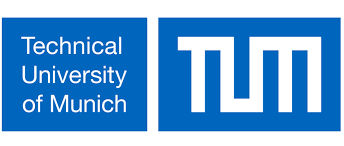
Master of Science (M.Sc.) Information Technologies for the Built Environment
Technical University of Munich, Germany
DURATION
2 YearsFEES
INR 10.56L/yrEXAMS
-INTAKE SESSION
OCT 2025
More courses at Technical University of MunichView All
DURATION
2 YearsFEES
INR 10.56L/yrEXAMS
-
DURATION
2 YearsFEES
INR 10.56L/yrEXAMS
-
DURATION
2 YearsFEES
INR 5.28L/yrEXAMS
-
DURATION
2 YearsFEES
INR 7.04L/yrEXAMS
-
DURATION
2 YearsFEES
INR 7.04L/yrEXAMS
-

Master In Management
Frankfurt School of Finance & Management, Germany
DURATION
2 YearsFEES
INR 62.48L/yrEXAMS
-INTAKE SESSION
AUG 2024
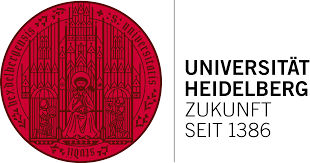
Mathematics-Master
Heidelberg University, Germany
Mathematics Master is an advanced Masters course offered by Heidelberg University, Germany in the field of Science. It is designed to provide students with comprehensive knowledge and practical skills in various aspects of Science, preparing them for successful careers in this dynamic industry. The course curriculum is carefully crafted to cover a wide range of topics, ensuring that students gain a deep understanding of the subject matter and develop the necessary expertise to excel in Science field.
DURATION
2 YearsFEES
INR 0.27L/yrEXAMS
-INTAKE SESSION
JUN 2025
More courses at Heidelberg UniversityView All

Master of Business Administration-90 ECTS
International School of Management, Germany
Note: A mandatory enrollment fee of EUR 1,500 is applicable.
DURATION
Online:7 MonthsOn-campus:1 YearFEES
Online: INR 4,50,000On-campus: Euro 16,620 (including thesis)

MSc in Mechanical Engineering
Karlsruhe Institute of Technology (KIT), Germany
MSc in Mechanical Engineering is an advanced Masters course offered by Karlsruhe Institute of Technology (KIT), Germany in the field of MSc. It is designed to provide students with comprehensive knowledge and practical skills in various aspects of MSc, preparing them for successful careers in this dynamic industry. The course curriculum is carefully crafted to cover a wide range of topics, ensuring that students gain a deep understanding of the subject matter and develop the necessary expertise to excel in MSc field.
DURATION
2 YearsFEES
INR 5.28L (Total)EXAMS
-INTAKE SESSION
SEP 2025
More courses at Karlsruhe Institute of Technology (KIT)View All

Masters of Business Administration
Steinbeis University School of Management and Innovation, Germany
DURATION
1 Year 5 MonthsFEES
INR 22.70L (Total)EXAMS
-INTAKE SESSION
OCT 2024
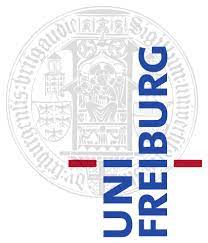
Computer Science Master of Science (M.Sc.)
University of Freiburg, Germany
Computer Science Master of Science (M.Sc.) is an advanced Masters course offered by University of Freiburg, Germany in the field of Science. It is designed to provide students with comprehensive knowledge and practical skills in various aspects of Science, preparing them for successful careers in this dynamic industry. The course curriculum is carefully crafted to cover a wide range of topics, ensuring that students gain a deep understanding of the subject matter and develop the necessary expertise to excel in Science field.
DURATION
2 YearsFEES
INR 2.64L/yrEXAMS
-INTAKE SESSION
JUL 2025
More courses at University of FreiburgView All
DURATION
2 YearsFEES
INR 2.64L/yrEXAMS
-

MSc Business Intelligence and Data Science (PGMP)
International School of Management, Germany
Note: A mandatory enrollment fee of €1,500 is applicable.
DURATION
Online:7 MonthsOn-campus:1 Year 4 MonthsFEES
Online: INR 4,50,000On-campus: EUR 17,052

MSc in Data Science
Leipzig University, Germany
DURATION
2 YearsFEES
INR 0.00L (Total)EXAMS
-INTAKE SESSION
SEP 2024
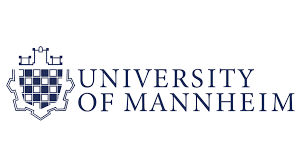
Master in Data Science
University of Mannheim, Germany
Master in Data Science is an advanced Masters course offered by University of Mannheim, Germany in the field of Data Science. It is designed to provide students with comprehensive knowledge and practical skills in various aspects of Data Science, preparing them for successful careers in this dynamic industry. The course curriculum is carefully crafted to cover a wide range of topics, ensuring that students gain a deep understanding of the subject matter and develop the necessary expertise to excel in Data Science field.
DURATION
2 YearsFEES
INR 17.98L/yrEXAMS
-INTAKE SESSION
SEP 2025
Recommended articles for you
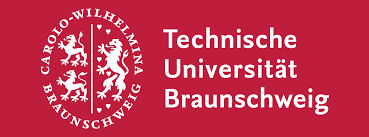
Master of Science in Computational Sciences in Engineering
Braunschweig University of Technology, Germany
DURATION
2 YearsFEES
INR 4.22L (Total)EXAMS
-INTAKE SESSION
OCT 2025
More courses at Braunschweig University of TechnologyView All
DURATION
2 YearsFEES
INR 4.22L (Total)EXAMS
-
DURATION
2 YearsFEES
INR 4.22L (Total)EXAMS
-
DURATION
2 YearsFEES
INR 4.22L (Total)EXAMS
-
DURATION
2 YearsFEES
INR 4.22L (Total)EXAMS
-
DURATION
2 YearsFEES
INR 4.22L (Total)EXAMS
-
DURATION
2 YearsFEES
INR 4.22L (Total)EXAMS
-
DURATION
2 YearsFEES
INR 4.22L (Total)EXAMS
-
DURATION
2 YearsFEES
INR 4.22L (Total)EXAMS
-

MSc International Management (PGMP)
International School of Management, Germany
Note: A mandatory enrollment fee of €1,500 is applicable.
DURATION
Online:7 MonthsOn-campus:1 Year 4 MonthsFEES
Online: INR 4,50,000On-campus: EUR 17,052
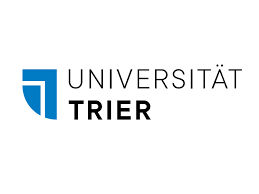
Master of Science Applied Statistics
University of Trier, Germany
Master of Science Applied Statistics is an advanced Masters course offered by University of Trier, Germany in the field of Applied Statistics. It is designed to provide students with comprehensive knowledge and practical skills in various aspects of Applied Statistics, preparing them for successful careers in this dynamic industry. The course curriculum is carefully crafted to cover a wide range of topics, ensuring that students gain a deep understanding of the subject matter and develop the necessary expertise to excel in Applied Statistics field.
DURATION
2 YearsFEES
INR 9.09L/yrEXAMS
-INTAKE SESSION
JUN 2025

Master of Arts
Paderborn University, Germany
DURATION
2 YearsFEES
INR 0.00L (Total)EXAMS
-INTAKE SESSION
JAN 2026
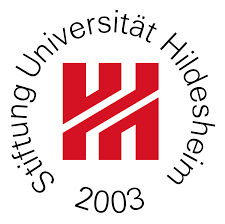
International Master's Program in Data Analytics
University of Hildesheim, Germany
International Master's Program in Data Analytics is an advanced masters course offered by University of Hildesheim, Germany in the field of Data Analytics. It is designed to provide students with comprehensive knowledge and practical skills in various aspects of Data Analytics, preparing them for successful careers in this dynamic industry. The course curriculum is carefully crafted to cover a wide range of topics, ensuring that students gain a deep understanding of the subject matter and develop the necessary expertise to excel in Data Analytics field.
DURATION
2 YearsFEES
INR 0.70L/yrEXAMS
-INTAKE SESSION
SEP 2025
More courses at University of HildesheimView All

MSc International Management
International School of Management, Germany
Note: A mandatory enrollment fee of EUR 1,500 is applicable.
DURATION
Online:7 MonthsOn-campus:1 Year 4 MonthsFEES
Online: INR 4,50,000On-campus: EUR 17,052

General Management M.B.A.
Hof University of Applied Sciences, Germany
General Management M.B.A. is an advanced masters course offered by Hof University of Applied Sciences, Germany in the field of MBA. It is designed to provide students with comprehensive knowledge and practical skills in various aspects of MBA, preparing them for successful careers in this dynamic industry. The course curriculum is carefully crafted to cover a wide range of topics, ensuring that students gain a deep understanding of the subject matter and develop the necessary expertise to excel in MBA field.
DURATION
2 YearsFEES
INR 5.81L/yrEXAMS
-INTAKE SESSION
NOV 2025

Construction Management for Civil Engineers MEng
University of Applied Management, Germany
This program focuses on advanced project planning, site management, and sustainable construction practices tailored for civil engineers. It combines technical knowledge with leadership training and legal frameworks in the construction industry. Students learn to manage complex infrastructure projects while optimizing cost, quality, and timelines. Practical simulations and real-world case studies enhance hands-on learning. Graduates are prepared to lead in construction firms, engineering consultancies, or public works.
DURATION
1 Year 6 MonthsFEES
INR 6.28L/yrEXAMS
-INTAKE SESSION
SEP 2025
More courses at University of Applied ManagementView All

Master of Science in CyberMACS- Applied Cybersecurity
SRH University of Applied Sciences, Germany
This applied program, part of the CyberMACS initiative, emphasizes interdisciplinary and cross-border approaches to cybersecurity. Students study secure system design, cryptography, cyber law, and resilience strategies. The course includes mobility and collaboration with international institutions. Practical training and real-world simulations enhance technical readiness. Graduates are equipped for advanced careers in cybersecurity operations and policy-making.
DURATION
2 YearsFEES
INR 9.11L/yrEXAMS
-INTAKE SESSION
OCT 2025
More courses at SRH University of Applied SciencesView All
DURATION
2 YearsFEES
INR 11.44L/yrEXAMS
-
DURATION
2 YearsFEES
INR 12.23L/yrEXAMS
-
DURATION
2 YearsFEES
INR 12.23L/yrEXAMS
-
DURATION
2 YearsFEES
INR 12.23L/yrEXAMS
-
DURATION
1 Year 6 MonthsFEES
INR 12.23L/yrEXAMS
-

MSc Finance
International School of Management, Germany
Note: A mandatory enrollment fee of €1,500 is applicable.
About The Program
The MSc Finance at ISM combines lectures and hands-on projects, equipping students with expertise in accounting, taxation, risk management, and international finance, preparing them for leadership roles in corporate finance.
DURATION
Online:7 MonthsOn-campus:1 Year 4 MonthsFEES
Online: INR 4,50,000On-campus: EUR 17,052

M.A Digital Marketing (PGMP)
International School of Management, Germany
Note: A mandatory enrollment fee of €1,500 is applicable.
About the Program
For those looking for future-oriented marketing education, the MA Digital Marketing program at ISM provides focussed expertise across digital marketing strategies, cross-media online campaigns, marketing analytics, and new-age marketing tools. Learners will also deep-dive into audio and messenger marketing.
DURATION
Online:7 MonthsOn-campus:1 Year 4 MonthsFEES
Online: INR 4,50,000On-campus: EUR 17,052
TRENDING SEARCHES
- Masters in Computer Science in Germany
- MBA in Germany
- BBA in Germany
- Masters in Civil Engineering in Germany
- MBA in International Business in Germany
- Masters in Software Development in Germany
- Masters in Data Science and Analytics in Germany
- Masters in Mechanical Engineering in Germany
- Bachelors in Software Development in Germany
- Frankfurt School Of Finance And Management
- Offenburg University Of Applied Science
- Nuertingen Geislingen University
- Johannes Gutenberg University
- Ludwig Maximilians University
- Gisma Business School
- Technische Universitat Darmstadt
- University Of Trier
- Technical University Of Ilmenau
- Philipps University Marburg
- Goethe University
- Steinbeis University School Of Management And Innovation
- University of Kiel
- Fulda University Of Applied Sciences
- University of Bonn
- Reutlingen University
- University of Stuttgart
- Cologne University Of Applied Science
- University Of Augsburg
- University Of Bamberg
- University of Cologne
- Braunschweig University Of Technology
- Data Science and Analytics Courses in Germany
- ACC MIM 120 ECTS Online at IU Germany
- MBA 60 ECTS at IU Germany
- MBA 120 ECTS Online at IU Germany
- MBA 60 ECTS Online at IU Germany
Disclaimer
All information provided on this page is for general use and upGrad Abroad is not responsible for any errors or omissions. The Universities involved in this Program are accredited/recognized in the countries where they are established. Relevant terms and conditions apply.Any action taken upon the information found on this website is strictly at your own risk.
